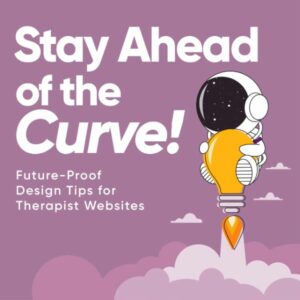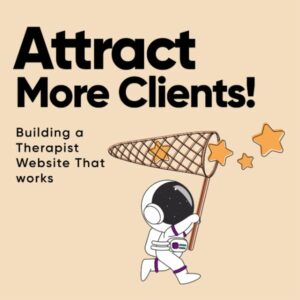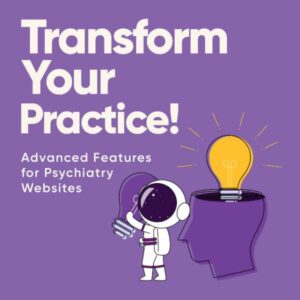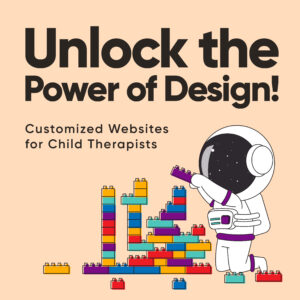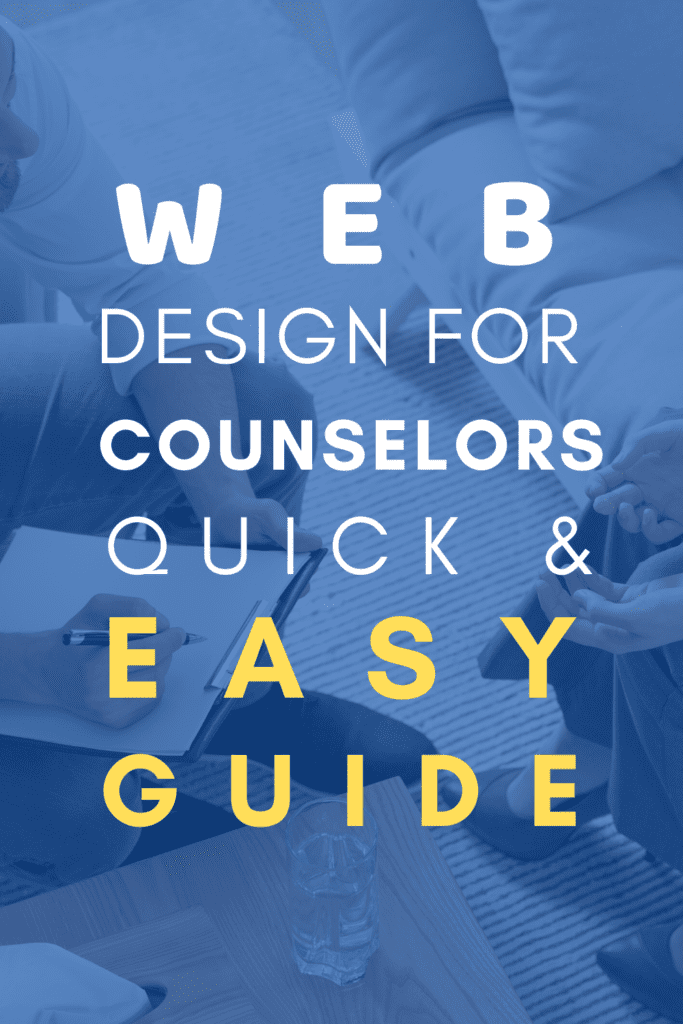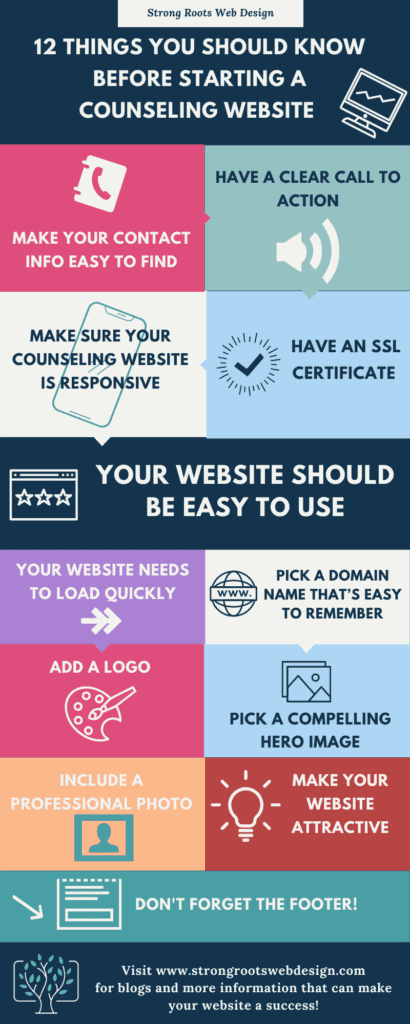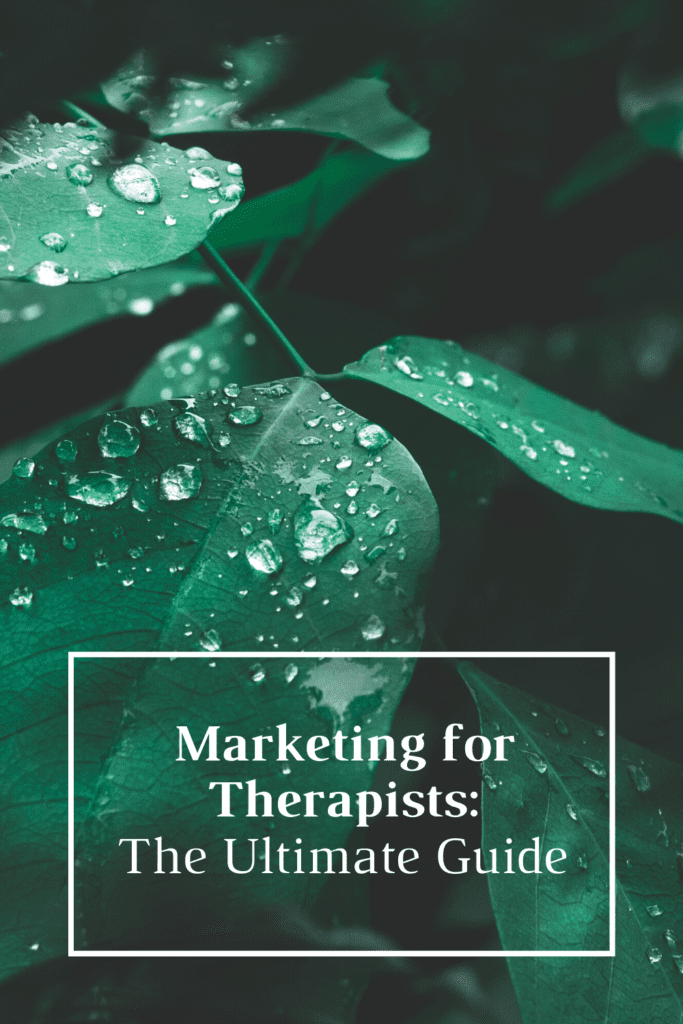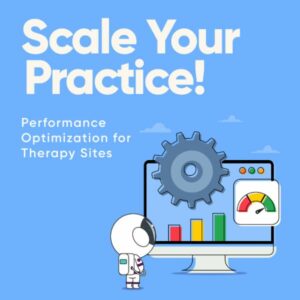
4 Factors to Consider When Choosing the Best Mental Health Website Design
Not sure how to set up your website so it perfectly reflects the image you want for your profession? This article will discuss the 4 factors to consider when choosing the best mental health website design for your practice.

Do you have a website for your private practice? If you do, great! Having your very own website with the best mental health website design is a great way to establish your legitimacy in your field of practice and bring in more clients.
But wait a minute. Is your therapy website optimized and set up in a way that would actually deliver the results you want?
You see, it’s not just enough for your site to attract clients. It should also be designed in a way that would help you stay visible as well. And in a world where online presence is everything for private practitioners like you, it’s even more crucial for your web design to be on point.
So how do you know if the web design you have in mind is good enough to make the cut?
In this article, we’ll look at 4 key factors you need to consider when deciding on the best mental health website design for your page:
- Impression
- Messaging
- Functionality
- Content

Factor # 1: Impression
More so than in any other field, how you present your practice on your website can either attract or repel prospective clients. And with almost all therapists going online these days, it’s become even more important for you to evaluate whether you’re creating the right impression online.
Remember, the best mental health website designs are those that help you project the right image to your market.
So here are some questions you’d do well to ask:
- Does my website design portray an accurate image of my private practice?
- Does it convey that I have a professional facility and staff that they can rely on?
- Does it communicate relevant and necessary information regarding my practice?
If you answered with a No or Maybe to either of the questions above, then you may want to consider adding the following elements to your current website:
- Online videos
How-to videos or those that offer practical tips relevant to your field can be a great way to establish your authority in the industry. However, please make sure that the videos you embed are of good quality and is in line with the professional image you want to uphold.
- Additional visuals
Adding professional photos of you and your team (if any) allows potential clients a chance to get to know you a little bit better before deciding to work with you.
- Blogs
Another way to establish your authority online is by publishing blogs relevant to your practice. Not only does this help boost your online visibility, it also tells potential clients that you are highly knowledgeable in your field.
Factor # 2: Messaging
For your website design to be truly effective, all its elements should work together to convey a singular message. But before that could happen, there is one thing that you should get straight: your audience.
Who are you trying to reach with your website? Does your content speak to them the way you want it to?
The best mental health website designs are built around their target audiences, so it’s good to evaluate the overall messaging of your website by asking these questions:
- Who is your target audience for your website?
- Do your words resonate with them?
- What do you need them to understand?
- Do they have the information they need from your site?
- Is your messaging clear?
No matter who your intended audience is, you’d do well to remember that the best types of content are those that are relatable. The kind that won’t leave your visitors scrambling for the nearest exit from your page.
Sure, you probably can’t add jokes on your site, but you definitely can make the tone of your messaging warm and interesting.
If you’re not so sure whether your messaging is clear enough, then it definitely won’t hurt to test it out with different audiences before you actually publish them on your website. And remember, there’s nothing wrong with changing your messaging from time to time. What matters is that you keep the right visitors engaged with your content.
Factor # 3: Functionality
If there’s one thing that every website should be, it’s that it should be functional, no matter what device it’s loaded on and regardless of how many visuals you’ve added to it. Because really, there’s nothing worse than an aesthetic website that isn’t user-friendly at the very least.
So before deciding on what you think is the best mental health website design, make sure to check that all the elements on your website are functioning as they should. Here are some questions you’ll do well to ask as you make your assessment:
- Are all your links working and leading to the correct pages?
- Is your website set up in a way that’s easy for your visitors to navigate?
- Is your contact information easily accessible?
Again, the best mental health website design for you is one that combines form with functionality. Especially functionality. Otherwise, your website is hardly going to give you the results (e.g. clients) that you want.
Factor # 4: Content
Content navigation is the last on our list of considerations when choosing the best mental health website design for you. But it certainly doesn’t imply that it’s the least important among the four. If anything, this factor is crucial, since a huge part of the entire user experience depends on the quality of the content you’ve presented.
As such, it is only right for you to consider the CMS (Content Management System) you’ll be using for the website design you have in mind. Why does this matter? Because the CMS of your choice can affect the efficiency of your content updates.
For example, if you’re using WordPress, you can easily enable multiple users to manage your content.
Your CMS should allow your team to promptly update your content—something that you should definitely do on a regular basis—so it resonates better with your target audience. And of course, it also allows you and your team to easily correct any typos or grammatical errors before your visitors form the wrong impression on the quality of your services.

Choosing the Best Mental Health Website Design
With quite a number of website designs to choose from for your site, it can be quite a challenge to finally settle with a specific one. But no matter what design you’ll end up choosing, make sure to consider the four factors we have just discussed: impression, messaging, functionality, and content. And remember, the best mental health website design is the one that best aligns with your overall goal for your site.
If you’re not entirely sure which website design would suit your practice best, then you might want to consider consulting an expert in that area. That way, you’ll have peace of mind knowing that your website accurately represents you and your services—from your website colors down to the typography.
Looking for a website design consultant? Click here to book a free consultation with me, and let’s talk about what we could do to bring your dream website to life.
Did you like this post? Share it!
Related Reads for Starting A Therapist Website
- Best Ecommerce Solutions for Small Business and Therapy Practice Websites
- Custom vs template website For Your Therapy Practice
- Tips on Website Design For Mental Health Professionals
- Advanced Features for Psychiatry Practice Websites
- The Benefits and Drawbacks of a Counseling Website Template: A Comprehensive Guide
- Web Design for Therapists and Healers
- 4 Ways to Identify Web Design Goals for Your Therapists Website
- Web Design for Psychologists
- Benefits of Getting Customized Therapy Website Builder Services
- Website For Forensic Psychology Practice
- Best Practices for Psychologist Web Design
- Building a Therapist Website That Works
- Customized Websites for Child Therapists
- User-Friendly Website Templates For Therapists
- Photos for Your Therapy Website | Counseling Stock Photos
- 4 Factors to Consider When Choosing the Best Mental Health Website Design
- Private Practice Therapist Websites: Secrets to Success
- Therapist Websites: 8 Myths Every Therapist Should Know!
Need any of the following?
Here are some Sample Websites We’ve Created:
Check out our Portfolio for more!
Hi! I’m Sarah.
I help counselors and therapists have a bigger impact on the world through better client connection. I do this by creating beautiful visuals and strategically designed websites.








